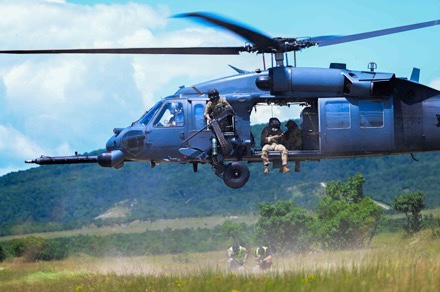
PÁPA AIR BASE, Hungary (AFNS) —
The 56th Rescue Squadron and the 56th Rescue Generation Squadron assigned to Aviano Air Base, Italy, are participating in the bilateral training exercise Jolly Vihar 23-2 at Pápa Air Base, Hungary June 26 through July 7.
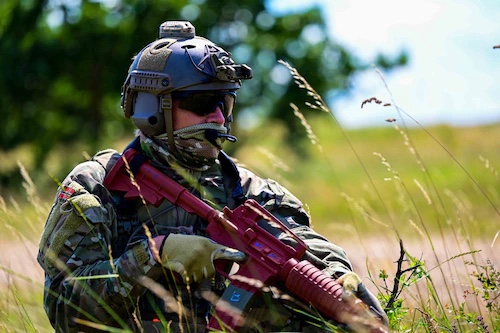
Exercise Jolly Vihar is aimed to enhance the U.S. and Hungarian forces’ ability to conduct integrated combat search and rescue scenarios and perform maintenance operations. This exercise benefits the 56th RQS and 56th RGS along with NATO ally and partner nations by enhancing interoperability while learning each other’s techniques, strategies and procedures.
“The purpose of exercise Jolly Vihar for the 56th Rescue Squadron is terminal employment,” said U.S. Air Force Tech. Sgt. Kayleigh Jones, 56th RQS special missions aviator instructor. “This is a great time for aircrew to practice factor threat analysis because we never know what squadron or unit we’re going to be working with. The more we integrate, the better we can facilitate personnel recovery across Europe.”
Three U.S. Air Force HH-60G Pave Hawks flew to Pápa Air Base for Jolly Vihar. During the two-week exercise, a large portion of the training was live fire and search and rescue missions. Airman assigned to Aviano AB and Pápa AB act as red cells during the search and rescue missions. Red cells are role players whose purpose is to present problems that the aircrew must solve as a team.
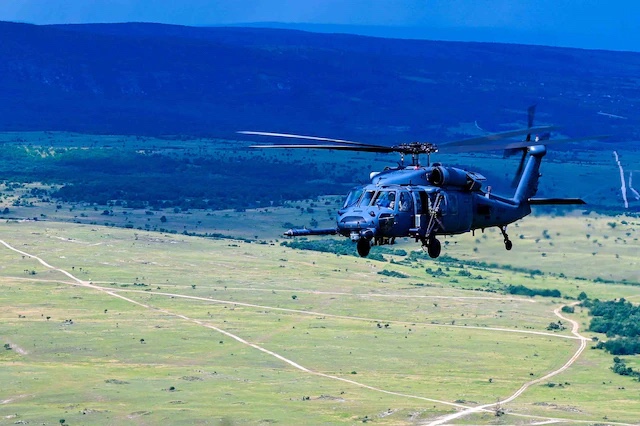
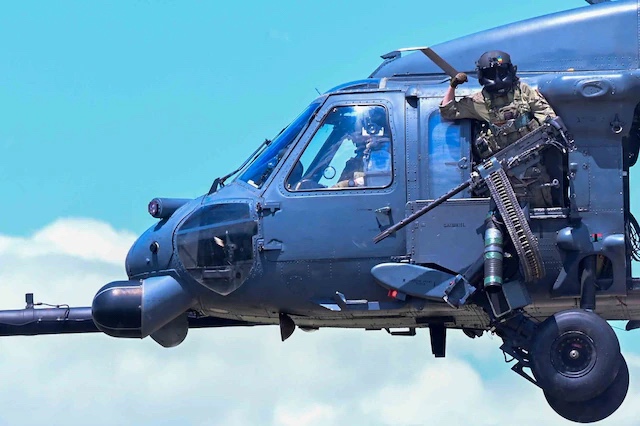
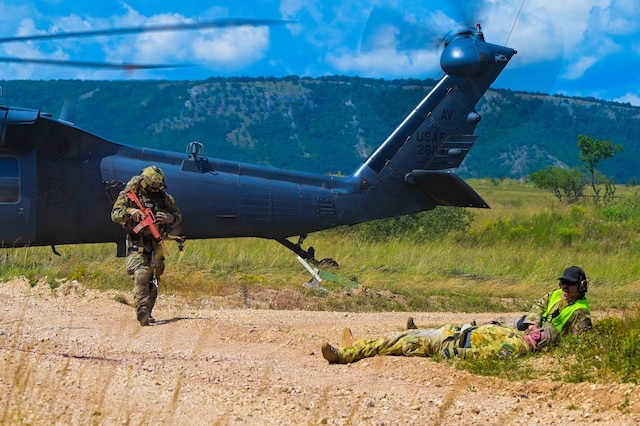
A Norwegian flight medic responds to a survivor during exercise Jolly Vihar at a training range near Pápa Air Base, Hungary, June 28, 2023. Search and rescue missions covered a large portion of exercise Jolly Vihar and role players acted as survivors needing to be recused by the aircrew. (U.S. Air Force photo by Airman Synsere Howard)
Norwegian forces on each aircraft fulfill the role of a pararescue team. Their job is to help to mitigate threats and safely recover red cells with information relayed to them and the aircrew. According to Jones, working with the Norwegian forces improves cohesion with the knowledge learned from one another. This can also be applied to real-world situations.
“We’re out here working with NATO allies and partner nations such as the Norwegians and the Hungarians,” Jones said. “We’re working on interoperability and learning their techniques and procedures while sharing ours with them.”
According to Jones, there are a lot of moving pieces in an exercise of this magnitude. The mission cannot be accomplished without other agencies, such as maintenance personnel, aviation resource managers, communications technicians and aircrew flight equipment specialists.
“These personnel are essential to making sure this exercise is executed safely and efficiently,” Jones said.
Jolly Vihar aims to advance and support rescue capability in U.S. European Command and NATO. Training with NATO allies and partners in exercises like Jolly Vihar strengthens partnerships, reduces tensions between nations and helps address potential conflicts before they start.
“We’re trying to build this network to increase our partner building capabilities,” Jones said. “We can’t do this alone.”
By Airman Synsere Howard, 31st Fighter Wing Public Affairs

